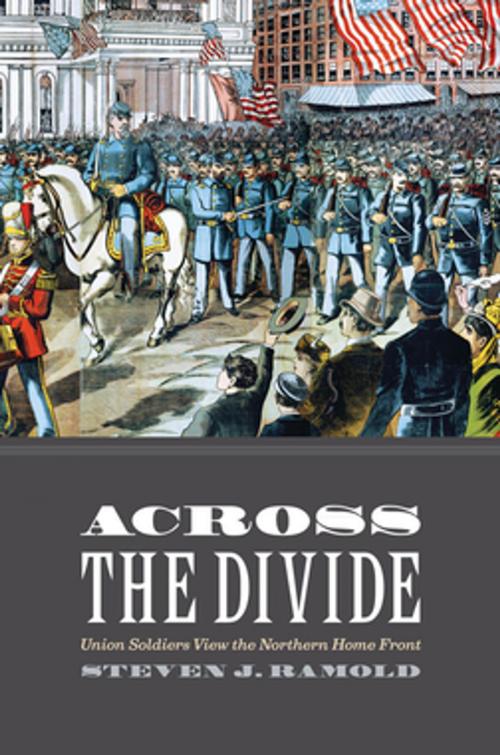Across the Divide
Union Soldiers View the Northern Home Front
Nonfiction, History, Americas, United States, Civil War Period (1850-1877), Military| Author: | Steven J. Ramold | ISBN: | 9780814760376 |
| Publisher: | NYU Press | Publication: | April 22, 2013 |
| Imprint: | NYU Press | Language: | English |
| Author: | Steven J. Ramold |
| ISBN: | 9780814760376 |
| Publisher: | NYU Press |
| Publication: | April 22, 2013 |
| Imprint: | NYU Press |
| Language: | English |
Union
soldiers left home in 1861 with expectations that the conflict would be short,
the purpose of the war was clear, and public support back home was universal.
As the war continued, however, Union soldiers began to perceive a great
difference between what they expected and what was actually occurring. Their
family relationships were evolving, the purpose of the war was changing, and
civilians were questioning the leadership of the government and Army to the
point of debating whether the war should continue at all.
Separated
from Northern civilians by a series of literal and figurative divides, Union
soldiers viewed the growing disparities between their own expectations and
those of their families at home with growing concern and alarm. Instead of
support for the war, an extensive and oft-violent anti-war movement emerged.
Often at odds with those at home and with limited means of communication to
their homes at their disposal, soldiers used letters, newspaper editorials, and
political statements to influence the actions and beliefs of their home
communities. When communication failed, soldiers sometimes took extremist
positions on the war, its conduct, and how civilian attitudes about the
conflict should be shaped.
In this
first study of the chasm between Union soldiers and northern civilians, Steven J.
Ramold reveals the wide array of factors that prevented the Union Army and the
civilians on whose behalf they were fighting from becoming a united front
during the Civil War. In Across the
Divide, Ramold illustrates how the divided spheres of Civil War experience
created social and political conflict far removed from the better-known
battlefields of the war.
Union
soldiers left home in 1861 with expectations that the conflict would be short,
the purpose of the war was clear, and public support back home was universal.
As the war continued, however, Union soldiers began to perceive a great
difference between what they expected and what was actually occurring. Their
family relationships were evolving, the purpose of the war was changing, and
civilians were questioning the leadership of the government and Army to the
point of debating whether the war should continue at all.
Separated
from Northern civilians by a series of literal and figurative divides, Union
soldiers viewed the growing disparities between their own expectations and
those of their families at home with growing concern and alarm. Instead of
support for the war, an extensive and oft-violent anti-war movement emerged.
Often at odds with those at home and with limited means of communication to
their homes at their disposal, soldiers used letters, newspaper editorials, and
political statements to influence the actions and beliefs of their home
communities. When communication failed, soldiers sometimes took extremist
positions on the war, its conduct, and how civilian attitudes about the
conflict should be shaped.
In this
first study of the chasm between Union soldiers and northern civilians, Steven J.
Ramold reveals the wide array of factors that prevented the Union Army and the
civilians on whose behalf they were fighting from becoming a united front
during the Civil War. In Across the
Divide, Ramold illustrates how the divided spheres of Civil War experience
created social and political conflict far removed from the better-known
battlefields of the war.















